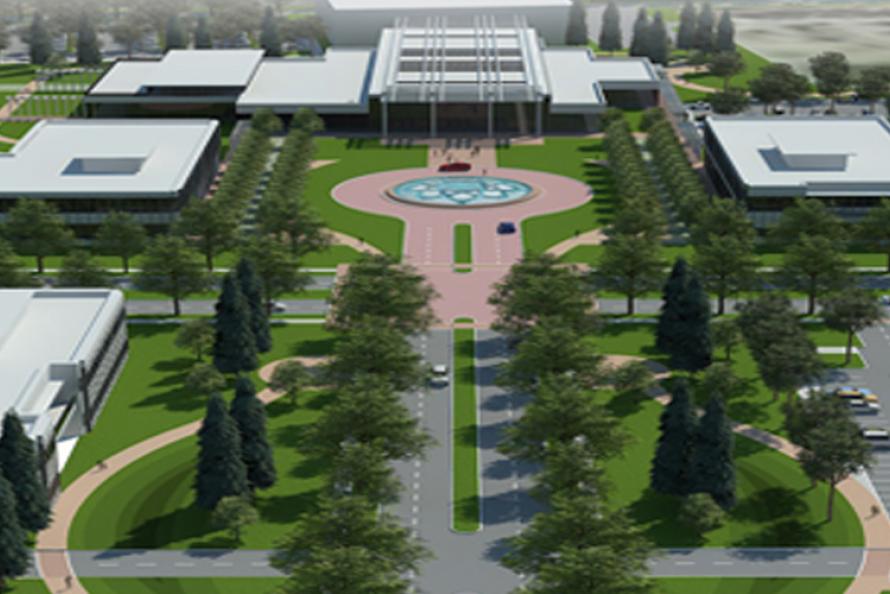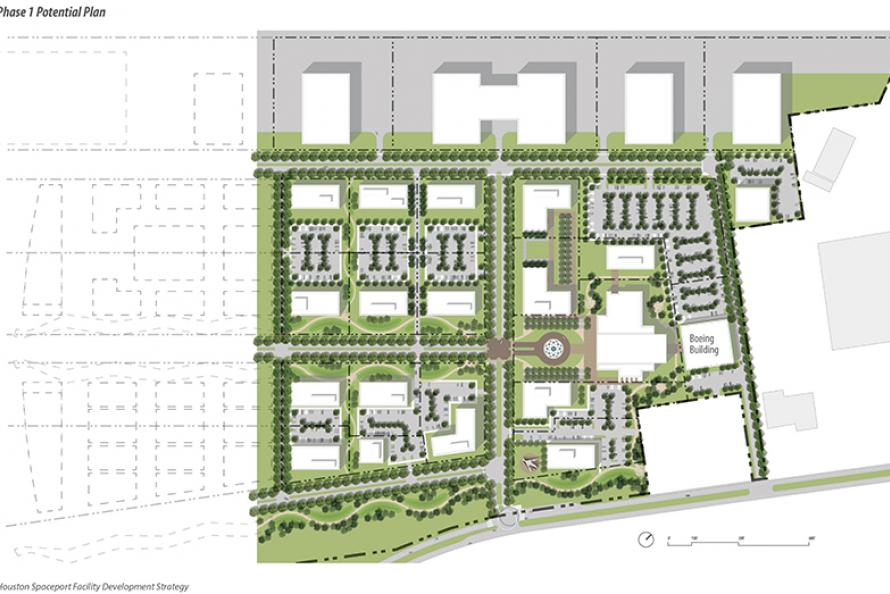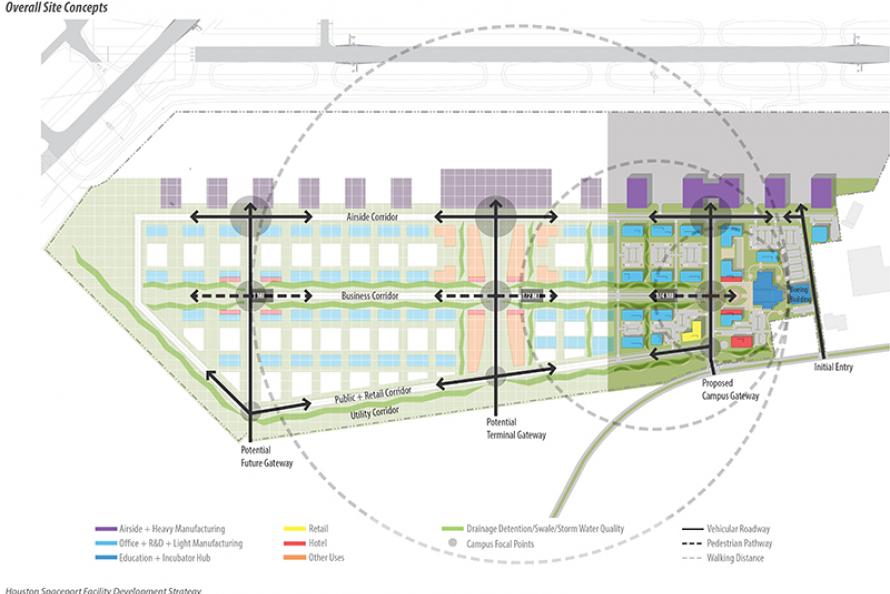The future of the Houston Spaceport project took another step forward, when airport system officials formally began the process of developing roadways and utilities necessary to attract aerospace and aviation development as well as manufacturing businesses to the budding facility at Ellington Airport.
The Houston Airport System put out a request for proposals from design-build firms for the project, one of these firms will prepare 90 acres of land on the site for future development. The move is part of Phase 1 in a multi-tiered plan to create a community of companies that can invent, develop and manufacture space technologies to support future zero gravity operations by Reusable Launch Vehicles (RLV). Once identified and approved, the chosen design-build firm will lay the necessary infrastructure — roads, water lines, communication cables, etc. — to attract aerospace and aviation development and manufacturing businesses.
“We are moving forward with the actual construction of the infrastructure that we’ve been planning for,” said Arturo Machuca, the General Manager of Ellington Airport and the Houston Spaceport. “This is an important step in the process, putting in place the groundwork for future partners and giving them the infrastructure necessary for developing future ventures.”
The project is expected to cost about $18.5 million. That money will come from Houston Airport System revenues and a $1 million grant from the U.S. Department of Commerce's Economic Development Administration.
If the timeline goes as planned, the Houston Airport System will ask the City Council to approve its selection of a design-build firm in early December. Once construction begins, the project should take about 12 months.
Innovation is at the very heart of aerospace and the core of the Houston Spaceport project. The innovative enterprise is designed to support growth and expansion across a highly diverse range of industry clusters, including:
- Drone technology
- Aerospace and aviation
- Energy and petrochemicals
- Medical and biotechnology
- Information technology
- Education
- Nanotechnology
Phase 1 will offer tenants and partners a unique environment in which to collaborate as well as an operational platform to achieve their critical business objectives.
By housing organizations from across a number of industries and disciplines on one campus, the Houston Spaceport will foster and accelerate key aerospace engineering activities, including:
- Component and composite development and fabrication
- Space vehicle assembly
- Zero-gravity scientific and medical experiments
- Microsatellite deployment
- Astronaut training and development
- Space tourism


